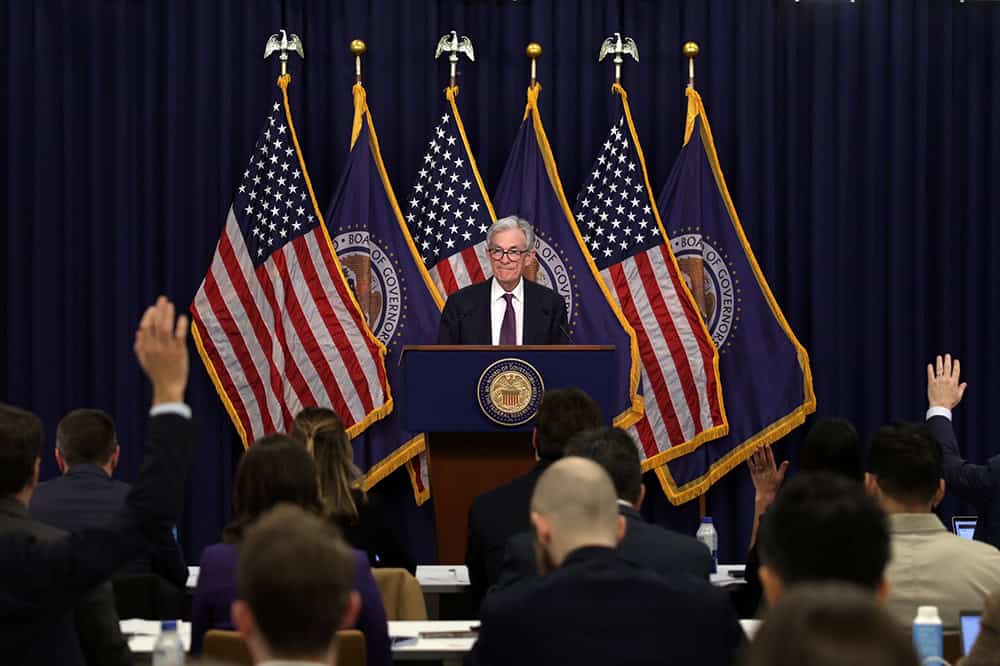Op-Ed: Debt is an Issue that New Hampshire Voters Care About
After months of political build-up, voters have finally begun caucusing and casting ballots in the key early states. As voters head to the polls in New Hampshire, what are the factors driving their decisions? You might find the answer surprising.
One issue that’s received little attention on the campaign trail — yet is a top concern for voters of both parties — is the national debt and its critical importance to our economy.
Nationwide, overwhelming majorities of voters believe that our nation’s $19 trillion — and growing — national debt is a major concern that warrants greater focus from the nation’s leaders. Nearly four out of five Americans agree that the debt should be among the president and Congress’ top three priorities, and want them to spend “more time” addressing the debt.
Candidates have been missing an opportunity to engage voters on our nation’s fiscal outlook and present solutions for securing a strong economic future. While conventional wisdom might suggest avoiding tough budget choices during a campaign, likely New Hampshire primary voters have made it clear that they will reward candidates who put forward a plan. Significant majorities of New Hampshire Democrats (61 percent) and Republicans (69 percent) are more likely to vote for a candidate who supports a bipartisan plan to address the national debt.
The explanation for their concern is simple: voters care deeply about the economy and they understand that addressing our debt is essential for a brighter economic future. Majorities from both parties in New Hampshire agree that a long-term plan to address the debt will likely lead to positive economic outcomes, including increased U.S. competitiveness in the global economy and greater economic opportunity for the next generation of Americans.
Voters are right to be concerned, because our long-term debt outlook is dangerously unsustainable. As the debt continues to grow, interest costs alone are on pace to rise significantly, becoming the third largest “program” in the federal budget by 2023, and the single largest by 2040.
Rising interest hurts the economy because it diminishes private investment, and crowds out programs that impact future growth, like education, infrastructure, and research and development.
So, 2016 candidates have the opportunity to not only demonstrate leadership on a critical issue, but also to tap into the top concerns of New Hampshire voters.
Elections are about the future, and there is no issue more important to America’s future than the threat posed by our nation’s long-term debt. If our debt remains out of control, it will affect everything from important programs, to wages and the economy, to our national security.
While our current fiscal path is both unsustainable and dangerous, the good news is that many solutions do exist, and a bipartisan majority of American voters supports action. Voters are indeed calling for those seeking office to put their ideas on the table, and present a plan. 2016 is the chance for candidates to show they are listening.
Michael A. Peterson is President and CEO of the Peter G. Peterson Foundation. This op-ed originally ran in the February 8, 2016 edition of the Nashua Telegraph.
Further Reading
Budget Basics: Unemployment Insurance Explained
The Unemployment Insurance program is a key counter-cyclical tool to help stabilize the economy and speed recovery during downturns or crises.
Quiz: How Much Do You Know About Healthcare in the United States?
The United States has one of the largest and most complex healthcare systems in the world. Take our healthcare quiz to see how much you know about the cost and quality of the U.S. healthcare system.
The Fed Reduced the Short-Term Rate Again, but Interest Costs Remain High
High interest rates on U.S. Treasury securities increase the federal government’s borrowing costs.


